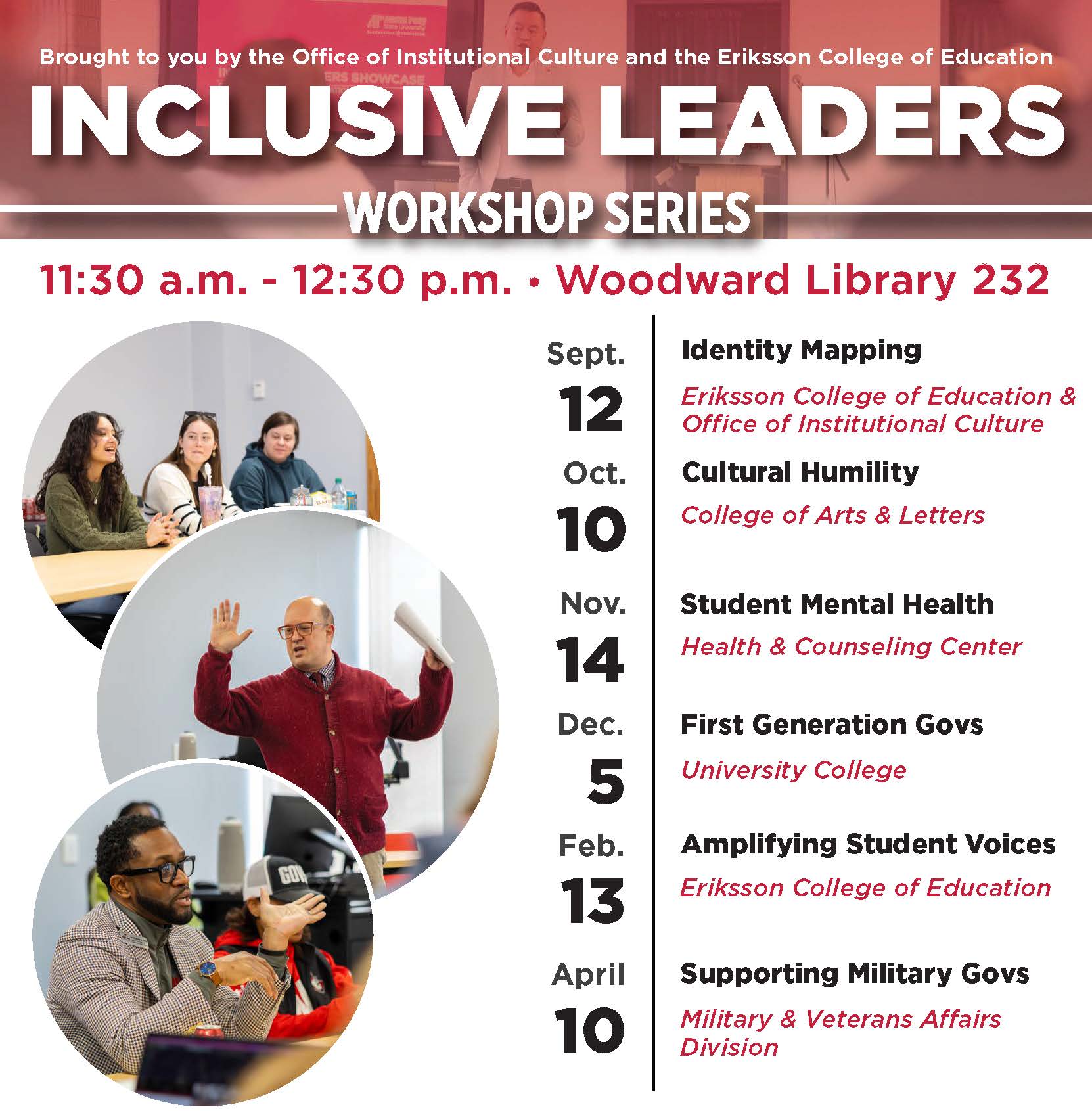Inclusive Leaders
The Eriksson College of Education regularly brings together faculty, staff, and students to focus on recruitment and retention initiatives at Austin Peay State University.
Inclusive Leaders Workshops
This campus-wide workshop series is open to all students, faculty, and staff who want to leverage and celebrate differences in their professional and personal lives.
Those who attend at least 5 workshops and complete associated workshop activities will be awarded an Inclusive Leader microcredential. Lunch is provided at each workshop for those who RSVP at least a week in advance.
The workshops below will take place from 11:30 a.m. to 12:30 p.m. on the following
Fridays in Woodward Library Room 232 or virtually via Zoom. Learn more or register
for the sessions on Govs Connect.

